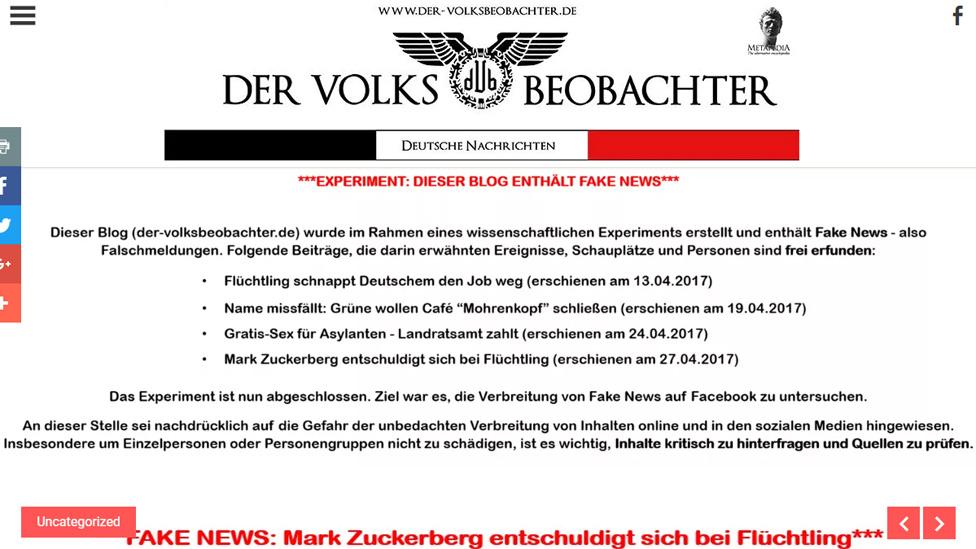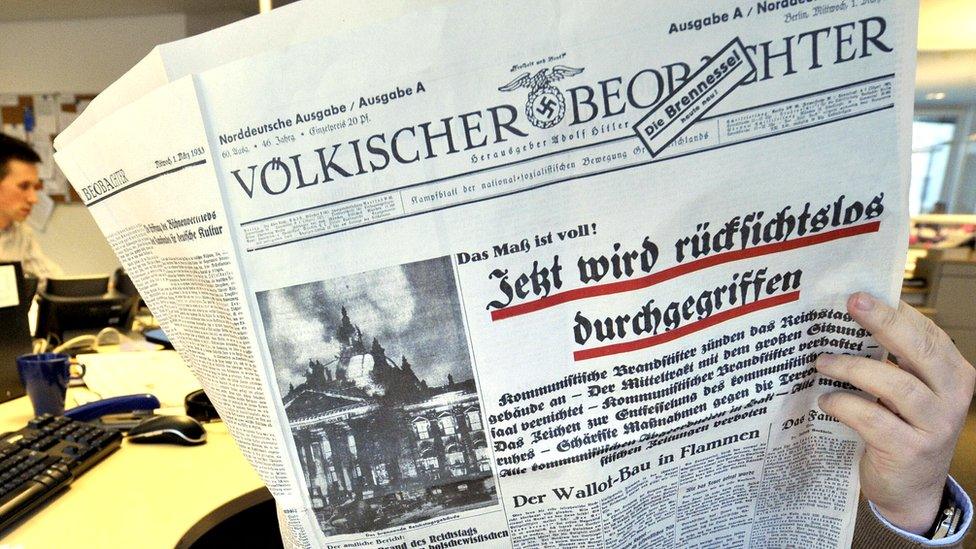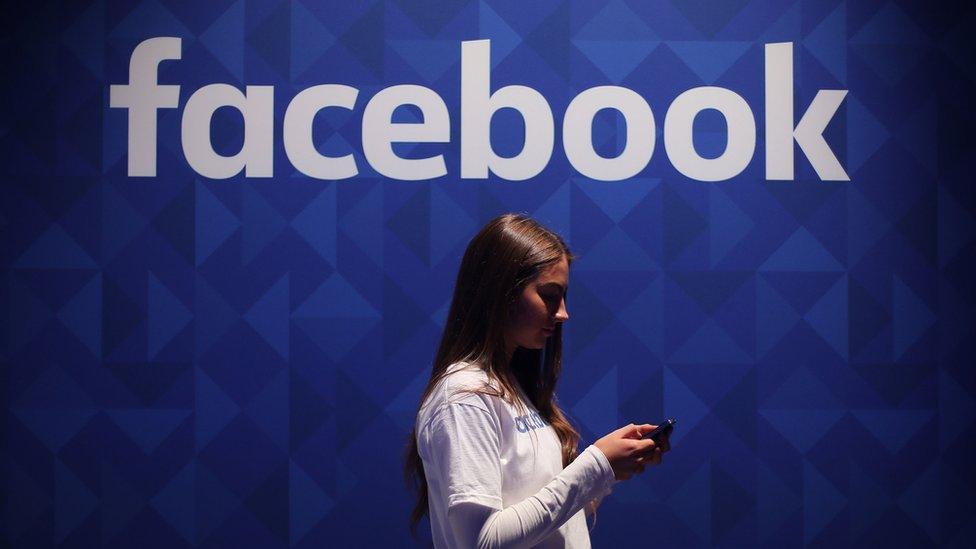German study shows fake news appetite with far-right blog
- Published

A fake news blog created by German university researchers found an eager audience among far-right sympathisers who shared racially charged stories.
The experiment by Hohenheim University researchers set up four fake profiles on Facebook.
One false story claimed that asylum seekers were having free sex with prostitutes funded by a local council.
That story reached 11,000 people within four days and was shared more than 150 times, German SWR radio reported, external.
Many readers reacted indignantly to the "news" about free prostitutes for asylum seekers. Few Facebook users spotted that the place where it was allegedly happening - Bad Eulen - does not exist.
The fake news blog now has prominent warnings in red above its stories, signalling "fake news".
The researchers called it "Der Volksbeobachter", external - an echo of the Nazi propaganda daily Völkischer Beobachter (People's Observer) - and included an eagle's wings logo, also reminiscent of the Nazis.
Media manipulation is a major concern in Germany as the country faces a general election on 24 September, with politicians warning that Russia might use fake news to influence the vote.
The Hohenheim researchers, in Stuttgart, spent the first two weeks posting real news stories, but with a far-right editorial bias. They focused on negative reports about German migration policy and reports on crimes by migrants.
In order to attract far-right readers, they linked to relevant groups, such as the websites of Alternative for Germany (AfD), Pegida and the Identitarian Movement.

In 2009 reprints of the Nazi daily Völkischer Beobachter were censored in Germany
Two weeks after one of the fake Facebook profiles was launched it had attracted 251 Facebook friends.
Among the fake news stories propagated by the Volksbeobachter site in April were:
"Refugee nicks a German's job"
"Name disapproval: Greens want to close Moor's Head Cafe"
"Mark Zuckerberg says sorry to a refugee".
The last story claimed that Mark Zuckerberg, the Facebook CEO, had apologised to a Syrian refugee who had been falsely accused of rape and had been trolled on Facebook.
"It was striking that our Facebook profile was never questioned - not by Facebook, that is, the institution itself, nor by other users," said Prof Wolfgang Schweiger, who led the research team.
Facebook's concerns
The US social media giant has an estimated 29 million users in Germany and in April it published full-page notices in German newspapers advising readers how to spot fake news.
The Facebook tips for Germans included: "check what other reports say", "check the evidence for this", "look for the author's sources".
Facebook is also working with a German fact-checking organisation, Correctiv, to combat fake news that is flagged up by Facebook users.
But Facebook has criticised a new German law - passed last month - which envisages fines of up to €50m (£45m; $59m) for social networks that fail to delete illegal hate speech or fake news.
A statement from Facebook, quoted by Business Insider, external, said the threat of big fines would encourage social media firms to "delete content that is not clearly illegal".
Germany's Data Protection Commissioner has echoed Facebook's concerns, external. The commissioner said the new law was "vague" in some respects, including regarding the powers given to an independent panel that will rule on "fake" news or alleged hate speech.
- Published16 February 2017
- Published15 January 2017

- Published12 September 2016
